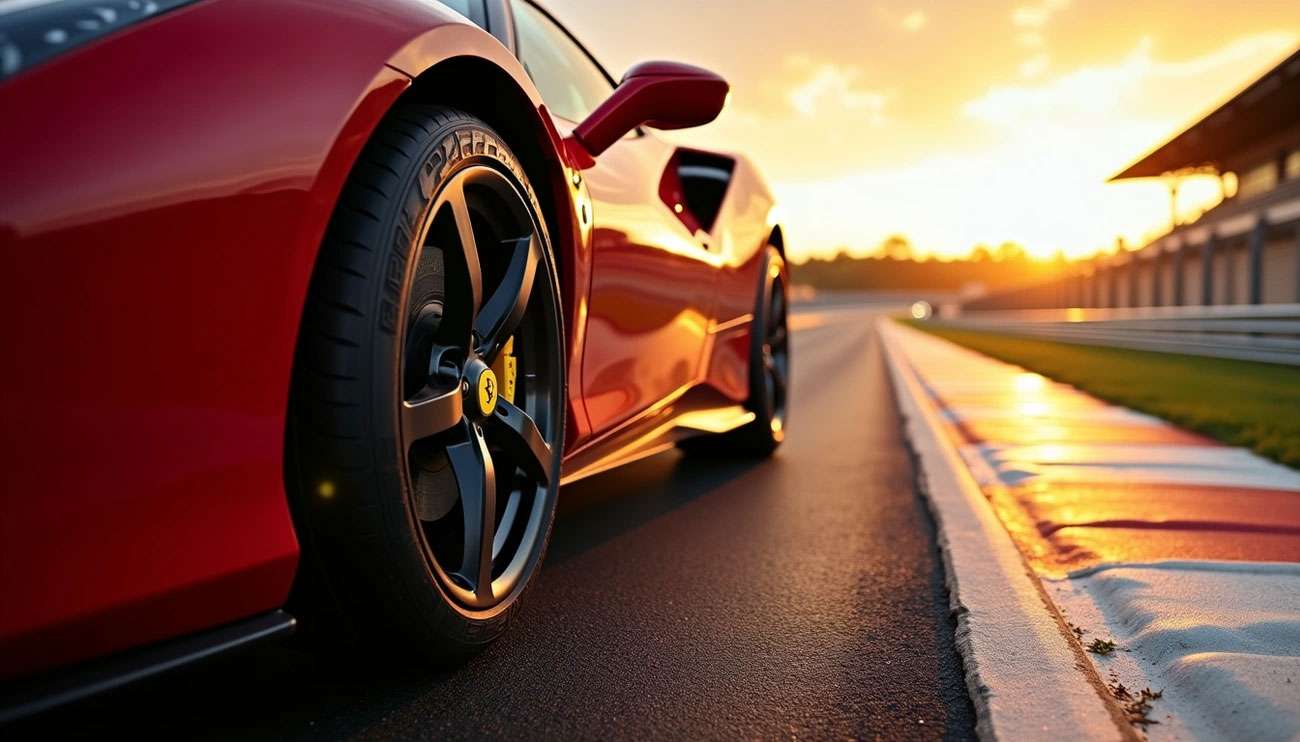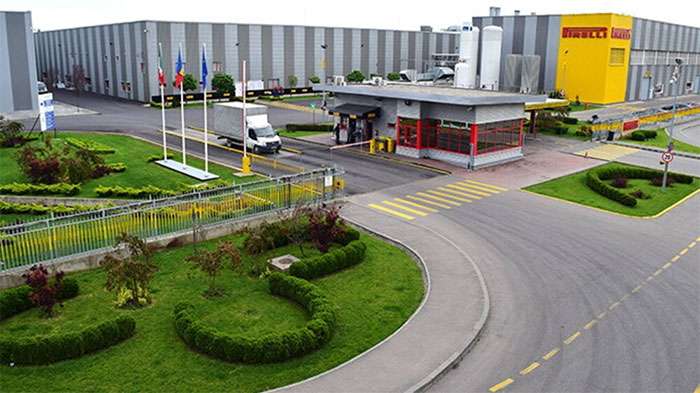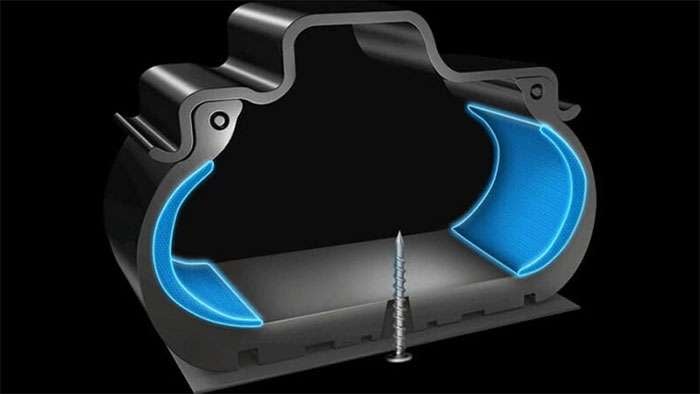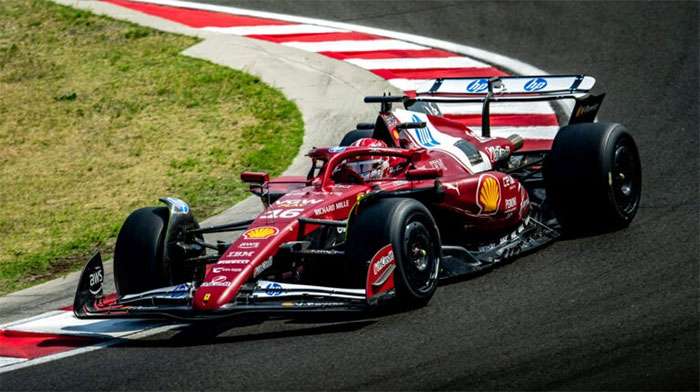
Are Pirelli tires good? The short answer is yes — and we're here to show you exactly why. With operations in over 160 countries and a position as one of the world's largest tire manufacturers, Pirelli has built the kind of global reputation that doesn't happen by accident. Founded in 1872 by Giovanni Battista Pirelli in Milan, Italy, this Italian powerhouse brings over 150 years of tire-making expertise to every product they create.
Pirelli tires have earned their reputation through high-performance sports tires designed specifically for luxury vehicles. What sets them apart is their serious commitment to innovation — over 2,100 people work in research and development across Milan and 12 technology centers worldwide. When a company invests approximately 6% of its high-value product revenues back into R&D, you know they're serious about staying ahead of the competition. That investment has paid off with an impressive portfolio of 5,800 patents.
This extensive development work translates directly into tires that deliver exceptional comfort, traction, and durability on the road. Pirelli has also tackled one of drivers' biggest complaints — road noise — creating quieter, more comfortable rides even on challenging surfaces.
But here's what you really want to know: Are all Pirelli tires created equal? How do they stack up against heavy hitters like Michelin? And most importantly for your wallet — how many miles can you expect from a set of Pirelli tires? We'll answer these questions and more as we break down what makes Pirelli worth considering for your next tire purchase.

Image Source: Pirelli
Pirelli's story spans over 150 years of tire manufacturing excellence. Understanding this rich history and massive global presence helps explain why Pirelli consistently delivers quality tires that drivers trust.
Giovanni Battista Pirelli started "G.B. Pirelli & C." as a limited partnership in Milan, Italy, back in 1872. The company initially manufactured various rubber products including elastic sheets, slabs, fibers, and vulcanized items. By 1885, Pirelli was producing rubber bands for carriages — an early hint at the automotive focus that would shape their future.
The company hit its first major milestone in 1894 with their first bicycle tire, then moved into automobile tires by 1901. This early entry into automotive tires positioned Pirelli perfectly as the car industry took off. Their racing heritage began early too — in 1907, a car running Pirelli tires won the first Grand Prix of the Automobile Club of France.
Pirelli's global expansion started early and moved fast. They opened plants in Barcelona (1902), Southampton (1903), Buenos Aires (1917), and Burton on Trent (1928). This worldwide vision has remained central to their strategy ever since.
Today, Pirelli runs 18 production plants strategically placed across 12 countries. This massive production network churns out approximately 75 million car tires annually as of 2024. Their "local-for-local" strategy puts factories near key sales markets for efficient distribution and service.
What makes Pirelli's manufacturing special is their Modular Integrated Robotized System (MIRS). This advanced production system lets factories make different tire types with minimal cost and setup time, giving them remarkable flexibility to meet specific market demands.
Beyond manufacturing, Pirelli maintains a commercial presence in over 160 countries through approximately 20,000 sales points worldwide. This extensive network keeps the brand accessible globally while maintaining consistent quality standards.
Pirelli's ownership has evolved significantly since its founding. Currently, Sinochem Holdings, a Chinese government-owned enterprise, holds the largest stake at 37%. Institutional investors own over 31%, retail investors account for 5%, and Camfin, a historic Milan-based holding company run by Marco Tronchetti Provera, controls 26.4%.
Pirelli ranks as the 5th largest tire manufacturer globally. Unlike competitors who spread across multiple segments, Pirelli positions itself as a "Pure Consumer Tire Company" focused on the [high-value tire market]. This specialization has helped them capture over 50% market share in the Prestige segment of the Original Equipment channel.
Here's what sets Pirelli apart from giants like Michelin and Bridgestone: While Pirelli holds 3.5%-4.0% global market share compared to Michelin's 15% and Bridgestone's 13%, they invest harder in innovation. Pirelli allocates about 4.0% of sales to research and development — higher than the 2.5%-3.0% their larger competitors invest. This serious R&D commitment directly impacts tire performance and explains why luxury car manufacturers consistently choose Pirelli.

Image Source: Pirelli
Understanding what makes Pirelli tires worth their premium price starts with looking at the technology behind them. While many tire companies talk about innovation, Pirelli backs up their claims with manufacturing systems and safety features that set new industry standards.
The Modular Integrated Robotized System (MIRS™) represents a complete rethinking of how tires should be made. This compact production system fits in less than 4,000 square feet yet handles the entire manufacturing process from raw materials to finished product without interruption. Most impressive is how MIRS cuts traditional tire construction from 14 complex phases down to just three: component preparation, building and curing, and finishing. The precision of these robots creates tires with exceptional consistency, completing one tire every three minutes with uniformity that human assembly simply cannot match.
Pirelli's Cyber™ Tire technology takes things further with embedded sensors that turn regular tires into intelligent safety systems. These sensors monitor tire conditions in real-time and send critical data directly to your vehicle's computer, providing immediate alerts about pressure, temperature, and potential safety issues. This technology represents Pirelli's commitment to 5G connectivity and future mobility, helping prevent dangerous situations before they develop.
Pirelli has achieved something remarkable in eco-friendly tire development — their latest tires contain over 70% bio-based and recycled materials without sacrificing performance. Here's what goes into these innovative tires:
Recycled steel from scrap metal
Rice husk-derived silica from rice processing waste
Circular carbon black produced from end-of-life tire pyrolysis
Bio-circular polymers made from used cooking oil
Plant-based bio-resins that actually improve wet and dry performance
This "green performance" approach extends to specific tire lines like the Cinturato and Scorpion Verde, which deliver 20% lower rolling resistance while maintaining excellent safety standards. The Scorpion Verde weighs 8% less than previous SUV tire designs, resulting in approximately 4% fuel savings over the tire's lifetime.
Road noise complaints led Pirelli to develop their Noise Canceling System (PNCS™), which incorporates sound-absorbing foam applied to the tire's inner wall. This technology reduces noise by 2-3 decibels, effectively cutting perceived cabin noise in half. The system uses specialized polyurethane foam that absorbs vibrations and eliminates cavity noise.
Even more impressive for everyday safety is Pirelli's Seal Inside™ technology. This self-sealing system handles almost 85% of puncture situations, allowing you to continue driving without air pressure loss. When a nail or screw penetrates the tire, sealing mastic immediately forms around the object. If the object falls out later, the mastic fills the hole automatically. During testing by Italian automotive magazine Quattroruote, a punctured Seal Inside™ tire maintained pressure within one-tenth of a bar compared to unpunctured tires after 452 kilometers of driving.
These technology advances explain why Pirelli commands premium prices — they're delivering advanced performance, safety, and comfort features that most standard tires simply don't offer.
All that technology talk means nothing without real-world performance. Pirelli's flagship tire models prove their engineering excellence where it matters most — on the road. Pro drivers consistently rank these tires among the market's best performers across every driving condition imaginable.
The P Zero PZ4 started life as Formula 1 technology and brings that racing DNA straight to your driveway. Professional drivers can't stop talking about its exceptional dry handling — the steering response is razor-sharp and the braking performance will leave you impressed. What really sets this tire apart is its outstanding balance and neutral behavior when you're pushing the limits, giving you the precise control that high-speed driving demands.
Don't worry about wet weather either. While the PZ4 performs best once it warms up, pro evaluations consistently highlight its high-speed stability and steering feedback as standout qualities. Sure, you'll pay a premium price, but drivers of sports cars and luxury sedans find the responsive handling characteristics worth every penny.
Here's Pirelli's best-selling tire, and there's a reason it flies off our shelves. The Cinturato P7 was designed specifically with North American drivers in mind. Professional evaluations consistently award this tire high marks (8-10 scores) for its exceptional comfort, delivering smooth ride quality with remarkably low noise levels. You get solid traction across varied conditions plus an impressive 70,000-mile treadlife warranty.
The P7 also incorporates eco-friendly materials and construction that reduces rolling resistance and improves fuel economy. Perfect for drivers who want performance without compromising their environmental consciousness.
SUV and crossover drivers, this one's for you. The Scorpion Verde (that's Italian for "green") combines serious performance with environmental responsibility. Professional drivers consistently praise its outstanding lateral stability and exceptional traction on wet and lightly snow-covered roads. The sophisticated tread design features four longitudinal grooves that deliver superior handling and efficient water drainage.
Here's what really impresses: the Scorpion Verde All Season Plus offers up to 65,000 miles of treadlife. Its eco-impact features reduce rolling resistance and tire weight compared to previous Pirelli SUV tires, boosting fuel economy by approximately 4% over the tire's lifetime.
When winter hits hard, professional drivers consistently rate the Sottozero 3 as Pirelli's most capable offering. This third-generation winter tire earned outstanding scores (9-10) for snow and deep snow traction, with strong ice performance even in severe conditions.
Get the lowest prices on all Pirelli Tires
What makes the Sottozero 3 special is its ability to maintain performance across all winter conditions. The tire uses a specialized compound with polymers that improve thermal resistance for consistent performance in freezing temperatures. The directional tread pattern with 3D sipe technology enhances braking performance and snow-to-snow traction. Even though it's winter-focused, the Sottozero 3 maintains responsive dry handling that beats typical winter tires.

Image Source: Automotive Testing Technology International
Professional drivers don't test tires in controlled labs — they put them through the real world. Their hands-on experience tells the complete story about whether Pirelli tires actually deliver on their premium promises.
Professional evaluations consistently highlight Pirelli's excellent dry handling characteristics. The P Zero PZ4 receives particular praise for its sharp steering response and solid braking performance. Most drivers describe it as balanced and neutral, with progressive behavior at the limit that builds confidence.
Wet conditions tell a slightly different story. While Pirelli tires generally deliver good overall grip, some models fall slightly behind class leaders in wet braking. Here's something important to know: Pirelli performance tires work best after warming up. As one BMW driver puts it, "Really need some heat in them in order to perform".
Tread life is where Pirelli faces its biggest criticism from professional drivers. The company offers warranties up to 50,000 miles on many all-season models, but real-world experience often tells a different story.
One BMW M3 owner got only 28,000 km (approximately 17,400 miles) before needing replacement. Another driver noted their P Zero tires were "down to below 3mm of tread depth" after just 25,000 km. Most drivers report between 25,000-30,000 miles from their Pirelli tires, with one pro driver concluding that "around 30k is about normal" for premium performance models.
Professional drivers rate Pirelli's comfort features highly, especially when equipped with Pirelli's Noise Canceling System (PNCS). This technology reduces noise by 2-3 decibels, effectively cutting perceived noise in half. Without this feature, many drivers notice increased noise as tires wear.
The Scorpion All Terrain Plus earns specific praise for sound quality, emitting "only a little hum from the tread pattern when the vehicle was turning". Ride comfort across the lineup is typically rated as "admirable if a touch firm over impacts", with most customer surveys scoring comfort between 8-10 on a 10-point scale.
Real-world mileage varies significantly between Pirelli models. The P Zero performance line typically delivers between 25,000-30,000 miles, while all-season variants like the P Zero All Season Plus can reach closer to their 50,000-mile warranty. SUV tires like the Scorpion Verde may last up to 65,000 miles under ideal conditions.
Factors affecting longevity include driving style, road conditions, and proper maintenance. Professional drivers recommend regular rotation, proper inflation (many suggest 42 psi for optimal balance), and alignment checks to maximize tire life.
When two tire giants go head-to-head, the question isn't just about which is better — it's about which delivers the right value for your specific needs. Recent testing results have shaken up the established order in some surprising ways.
Michelin's Pilot Sport 4S ruled the performance segment for years. That changed in 2025. The Pirelli P Zero took the crown in a comprehensive comparison test conducted by Tire Reviews, outperforming the longtime champion. The P Zero dominated wet braking tests and posted the fastest times in dry conditions.
Here's the trade-off: Pirelli tires typically cost more upfront than comparable Michelin models, but both brands deliver solid value for the money you spend. The question becomes whether you prioritize peak performance or long-term cost efficiency.
Michelin still wins the longevity battle. Their tires consistently outlast most competitors, including Pirelli. The numbers tell the story — Michelin offers warranties up to 80,000 miles compared to Pirelli's 45,000-65,000 mile range. If you want maximum mileage from your tire investment, Michelin remains the better choice.
Get the lowest prices on all Pirelli Tires
Pirelli's lineup isn't uniformly excellent. The P Zero line — dubbed the "Rock Star of Tires" — earns its reputation as the go-to choice for Ferrari, Aston Martin, and Lamborghini. The Cinturato P7 represents their volume success story, engineered specifically for North American drivers.
The bottom line: Pirelli dominates sports and performance categories, while Michelin offers more consistent all-around capabilities across their entire range. Your driving style and priorities should guide your choice.
The answer to "Are Pirelli tires good?" is absolutely yes. After putting these tires through real-world testing, we can confidently say Pirelli delivers on their premium promises. Their 150-year track record speaks for itself, especially when you see flagship models like the P Zero PZ4 dominating racetracks and the Cinturato P7 delivering exceptional comfort for everyday drivers.
Here's the reality: Pirelli tires excel in handling, grip, and advanced technology. You'll get between 25,000-30,000 miles from performance models, while their all-season variants typically reach their warranty mileage. Yes, that's less than Michelin's longevity, but many drivers find this trade-off worthwhile when they experience Pirelli's superior wet-weather performance and precision handling.
The Noise Canceling System really works — cutting road noise in half makes a noticeable difference on long drives. Their commitment to eco-friendly materials shows they're thinking ahead without sacrificing the performance that made them famous.
Whether Pirelli tires are worth the premium price depends on what you're driving and how you drive it. Performance enthusiasts and luxury car owners will appreciate why Ferrari, Aston Martin, and Lamborghini choose Pirelli as original equipment. Daily commuters looking for comfort and safety will find excellent value in the Cinturato and Scorpion lines.
Our recommendation? Match the tire to your specific needs — vehicle type, driving conditions, and performance expectations. You can get the lowest prices on all Pirelli tires while still getting the quality that has made this Italian brand a global leader for over a century. Pirelli has earned its spot among elite tire manufacturers through consistent innovation and unwavering commitment to performance excellence.
Professional testing reveals Pirelli tires deliver exceptional performance, particularly excelling in handling and wet-weather conditions that matter most for safety and driving enjoyment.
• Pirelli P Zero outperformed Michelin Pilot Sport 4S in 2025 testing, claiming the performance tire crown with superior wet braking and fastest dry conditions • Expect 25,000-30,000 miles from performance models versus 50,000+ from all-season variants, trading longevity for superior handling characteristics • Advanced technologies like Noise Canceling System and Seal Inside™ self-sealing deliver premium comfort and safety features worth the investment • Pirelli excels in sports/performance categories while Michelin offers more balanced all-around capabilities and longer tread life • Premium pricing is justified for performance enthusiasts and luxury vehicle owners, but everyday drivers should consider specific model benefits
Pirelli's 150-year legacy of innovation shows in every tire, from Formula 1-inspired P Zero models to eco-friendly Cinturato lines. While they may not match Michelin's longevity, their superior handling, advanced safety features, and manufacturer endorsements from Ferrari, Aston Martin, and Lamborghini demonstrate why many drivers consider the performance trade-off worthwhile.
Pirelli tires generally deliver good overall grip in wet conditions. Professional evaluations highlight their excellent wet traction, with models like the P Zero PZ4 receiving particular praise for wet braking performance. However, some drivers note that Pirelli performance tires may require warming up to achieve optimal wet grip.
For many drivers, Pirelli tires justify their premium price through superior performance, especially in handling and wet conditions. High-end models like the P Zero line offer exceptional grip and responsiveness, making them a preferred choice for luxury and sports car manufacturers. However, the value proposition depends on individual priorities, as some competitors may offer longer tread life.
Pirelli tire longevity varies by model. Performance-oriented tires usually last between 25,000-30,000 miles, while all-season variants can reach closer to their 50,000-mile warranty under ideal conditions. Factors like driving style, road conditions, and proper maintenance significantly impact tire lifespan.
Recent testing has shown Pirelli outperforming Michelin in some key areas. The Pirelli P Zero, for instance, surpassed the Michelin Pilot Sport 4S in wet braking tests and overall dry condition performance. However, Michelin tires generally offer superior tread life and may provide more balanced all-around capabilities.
Pirelli incorporates several innovative technologies in their tires. These include the Noise Canceling System (PNCS) for reduced road noise, Seal Inside™ technology for self-sealing punctures, and the use of eco-friendly materials in their "green performance" tire lines. Additionally, their Modular Integrated Robotized System (MIRS) ensures high precision and consistency in tire manufacturing.